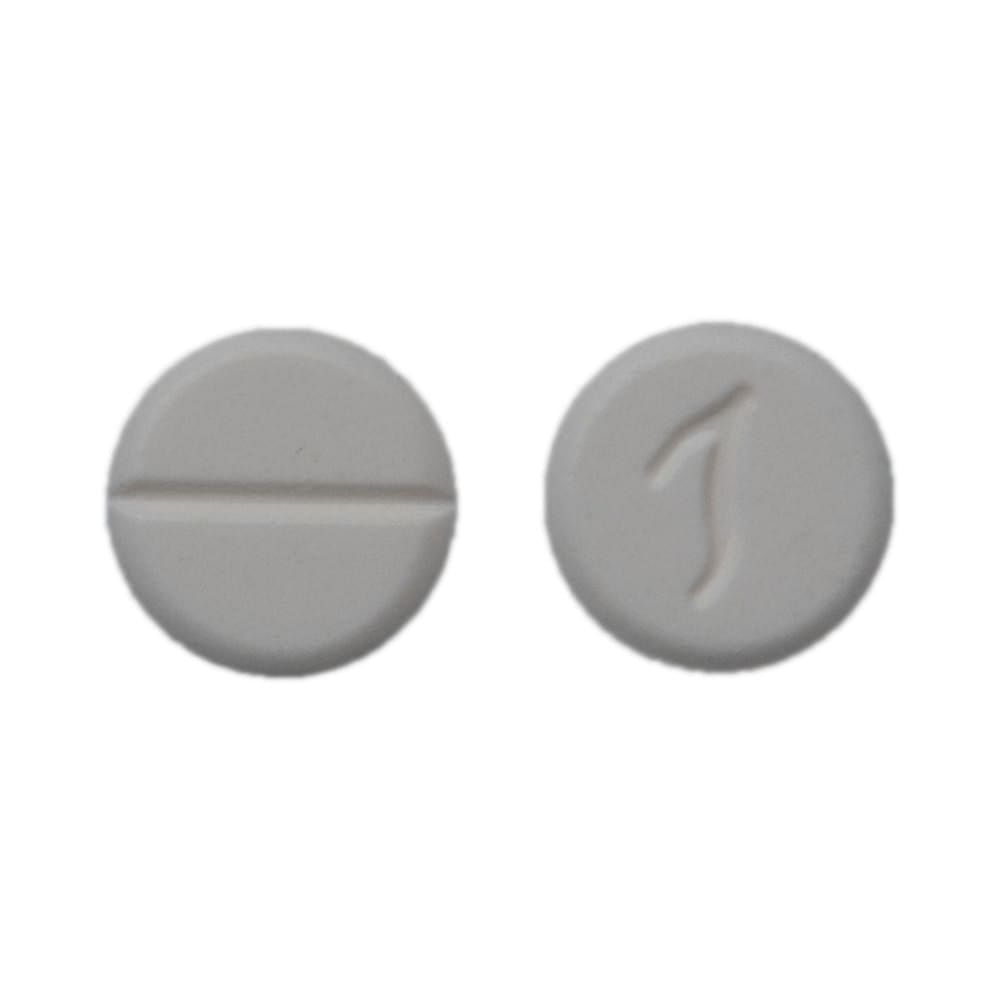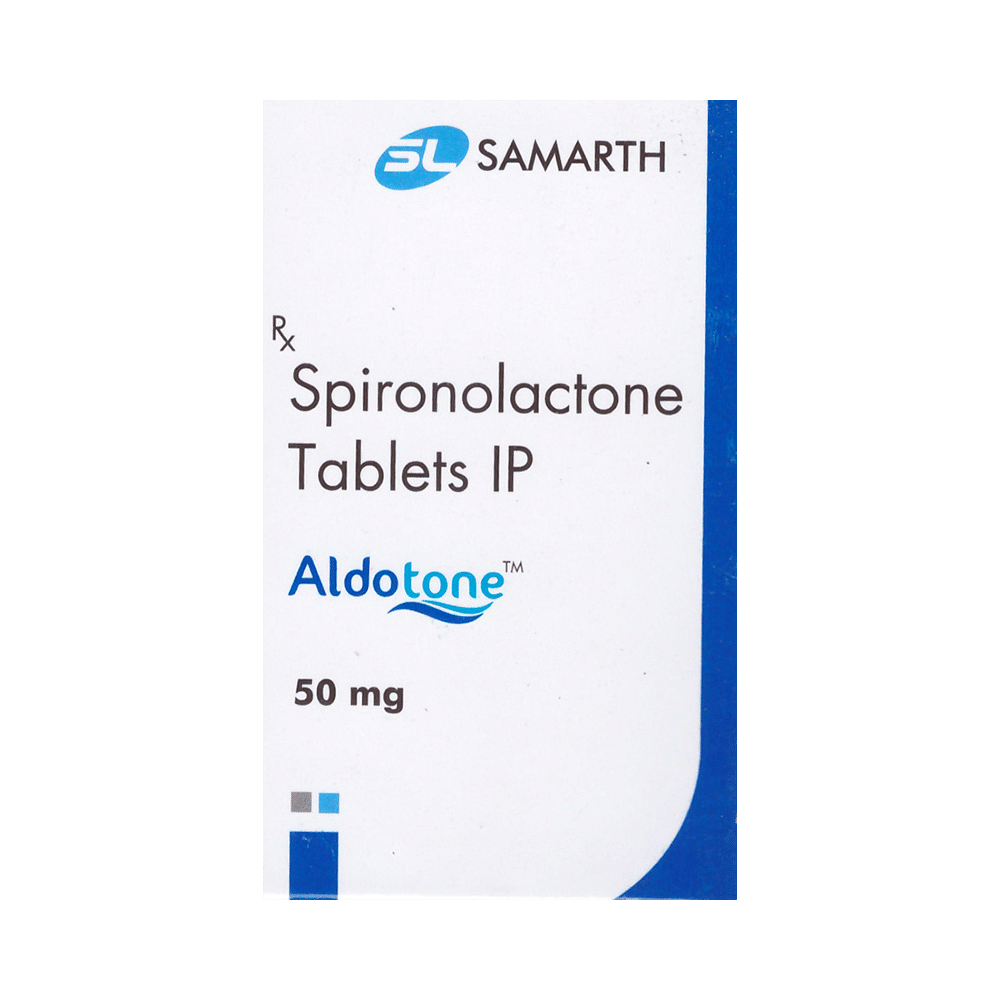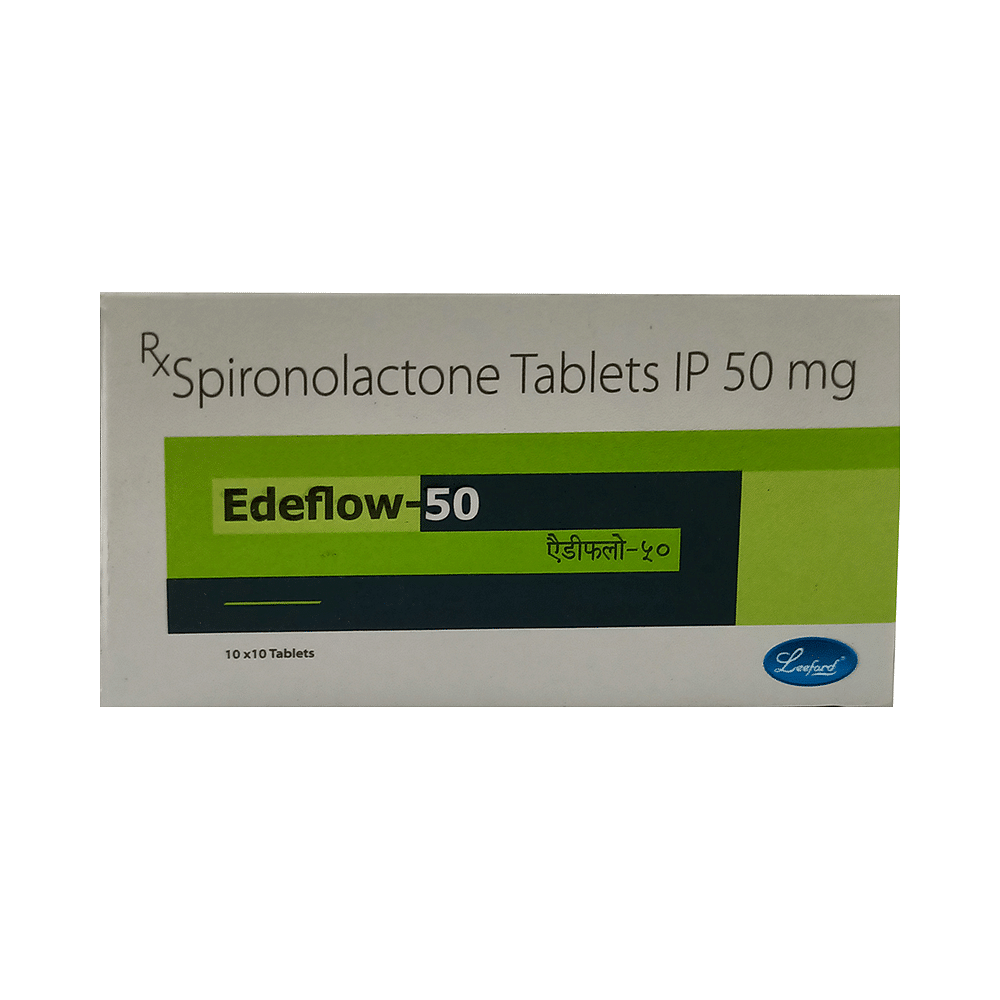
Spirolact 50mg Tablet
Manufacturer
Prevego Healthcare & Research Private Limited
Salt Composition
Spironolactone (50mg)
Key Information
Short Description
Spirolact 50mg Tablet is a medicine known as a diuretic (water pill) used to treat heart failure, high blood pressure, and low potassium levels in the body.
Dosage Form
Tablet
Introduction
Spirolact 50mg Tablet is a potassium-sparing diuretic used to treat heart failure, high blood pressure, and low potassium levels in the body. It reduces the swelling caused by some other conditions. This medicine is also used to treat low potassium levels in the body (hypokalemia).
Directions for Use
Take this medicine in the dose and duration as advised by your doctor. Swallow it as a whole. Do not chew, crush or break it. Spirolact 50mg Tablet is to be taken with food.
How it works
Spirolact 50mg Tablet is a potassium-sparing diuretic. It lowers blood pressure and swelling by removing the extra water and electrolytes from the body without loss of potassium.
Quick Tips
It can make you feel dizzy for the first few days. Do not drive or do anything requiring concentration until you know how Spirolact 50mg Tablet affects you. It may increase the level of potassium in your blood. Avoid taking potassium supplements and potassium-rich foods such as banana and broccoli. Your doctor will regularly check your kidney function and the amount of potassium in your blood while you are on this medicine. Notify your doctor if you experience dizziness, diarrhea, vomiting, fast or irregular heartbeat, swelling in feet, or difficulty breathing. Spirolact 50mg Tablet may cause breast pain/swelling, irregular periods (women), or trouble with sexual performance.
Related Medicines

Aldactone 50 Tablet

Aldotone 50mg Tablet

Silectone 50 Tablet

Spirix 50 Tablet

Sprino Ven 50mg Tablet

Edeflow 50 Tablet

Cglactone 50mg Tablet
Frequently asked questions
What is Spirolact 50mg Tablet?
Spirolact 50mg Tablet is a medication belonging to a class of medicines called potassium-sparing diuretics (water tablets). It helps remove excess fluid from the body. This medication is used to treat conditions like high blood pressure, congestive heart failure, edema (swelling), and low potassium levels.
What is the best time to take Spirolact 50mg Tablet?
Spirolact 50mg Tablet should be taken as prescribed by your healthcare professional. It helps eliminate excess fluid from the body, which can lead to frequent urination. Taking it during the day may help manage this effect and reduce nighttime disruptions.
Does Spirolact 50mg Tablet treat hypertension?
Yes, Spirolact 50mg Tablet effectively treats hypertension (high blood pressure). However, its effectiveness is enhanced when combined with other medications prescribed by your healthcare professional. It works by removing excess fluid to help lower blood pressure.
What foods should I avoid while taking Spirolact 50mg Tablet?
While on Spirolact 50mg Tablet, it is advisable to limit your intake of salt or sodium substitutes. Avoid high-potassium foods such as bananas, coconut water, spinach, sweet potatoes, and avocados. These can increase potassium levels which could pose health risks. Consult your healthcare provider for additional information regarding suitable food choices.
Can I use Spirolact 50mg Tablet for weight control?
No, Spirolact 50mg Tablet is not intended for weight control. It primarily focuses on managing fluid levels and blood pressure. If you have concerns about your weight, it's best to discuss this with your healthcare provider who can recommend the most suitable weight management strategies.
What other lifestyle changes should I make while taking Spirolact 50mg Tablet?
Living a healthy lifestyle is crucial when using Spirolact 50mg Tablet. Limit your salt intake and find ways to manage stress effectively. Consider practicing yoga, meditation, or engaging in hobbies that bring you joy. Ensure consistent sleep to regulate blood pressure and reduce stress levels. Quitting smoking and alcohol consumption can also benefit your overall health by managing blood pressure and preventing heart problems. Aim for a balanced diet with whole grains, fresh fruits, vegetables, and low-fat options. Consult your healthcare provider for personalized guidance regarding the use of Spirolact 50mg Tablet.
Can I take Spirolact 50mg Tablet with birth control?
Spirolact 50mg Tablet can be used alongside certain types of oral contraceptives (birth control pills) without apparent adverse interactions. However, always consult your healthcare provider for personalized advice as there may be specific considerations.
Is Spirolact 50mg Tablet harmful to the kidneys?
While generally safe for most individuals with kidney function within normal ranges, Spirolact 50mg Tablet can potentially lead to acute kidney failure in individuals with pre-existing kidney disease. It is crucial to inform your healthcare provider about any known kidney problems to avoid potential risks and receive appropriate monitoring.


